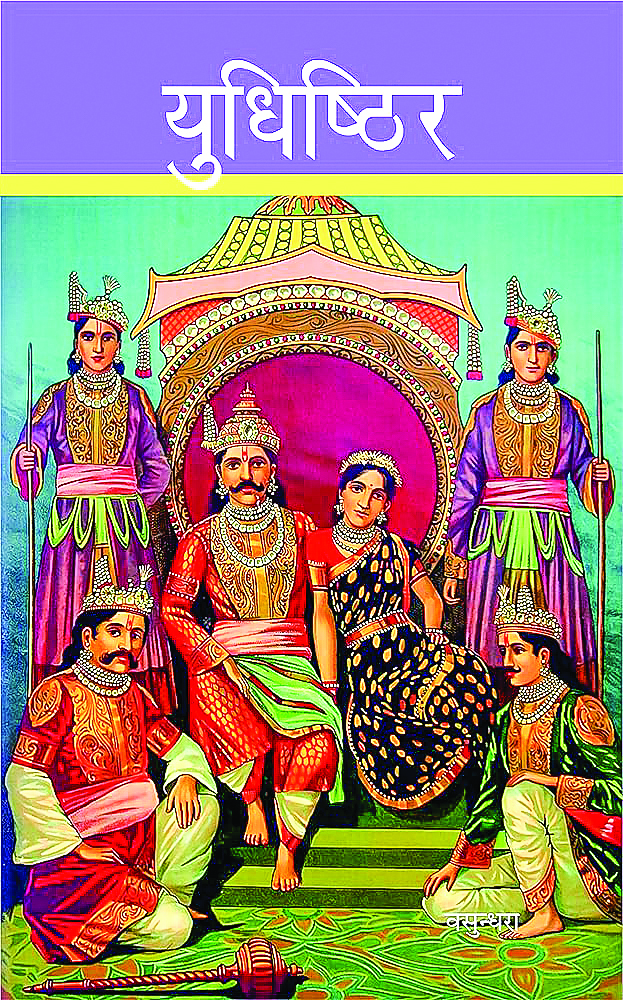The thundering sound of drums marred the royal proceedings in Hastinapur. It was as if a major celebration were underway in the palace. King Yudhishthir was surprised. As a king, it was unusual that he wasn’t aware of any event. He sent a court guard to check what the hullabaloo was all about. The guard returned with the news that Prince Bheem has organised some event. Before Yudhishthir could ask the guard to summon Bheem, the latter walked into the royal court. Not only Yudhishthir, but those present in the royal court were eager to know the reason behind the celebration.
‘I’m celebrating your victory,’ Bheem answered on being asked. The answer made everyone inquisitive, especially Yudhishthir, who asked, ‘I don’t understand. I haven’t won a war lately for such a celebration.’ ‘Oh, what you’ve achieved is beyond a mere victory in a war… after all, it’s a victory over death.’ Yudhishthir was getting restless as he asked, ‘Please save us the riddles and explain what exactly is meant by all this?’
‘An hour ago, I noticed an elderly man approach for financial assistance for his daughter’s wedding. He was asked to come over tomorrow. I wonder if either of you would be alive by then? However, you seem sure. In a world where one isn’t aware of the next moment, it’s heartening to know that you have transcended this human limitation. I’m pleased by the fact that you are aware of the future. As a matter of fact, you have conquered death. That’s the reason for this celebration.’
The sarcasm in the message was clear to those present in the royal court. How could as erudite a scholar and a follower of Dharma as Yudhishthir miss it? He immediately asked the guards to run and request the man to return to the royal court.
One can draw multiple lessons from this incident. While a debate on Dharma can go endlessly, a simple lesson is that noble deeds must never be postponed. For that matter, this philosophy applies to every single deed, be it in daily lives or for higher quests, such as seeking the ultimate truth. Procrastination, without a doubt, is detrimental. Remember what Kabir proclaimed: ‘Kaal kare so aaj kar, aaj kare so ab.’
What needs to be done today, ought to be done now. After all, who has seen tomorrow? Frankly, we have no idea of the next moment.


